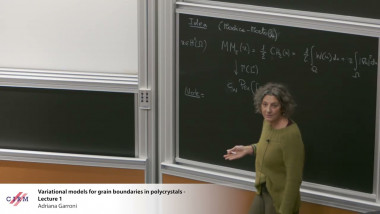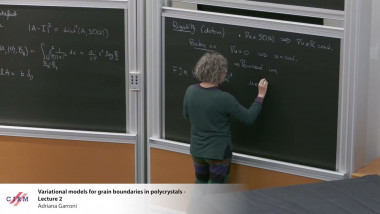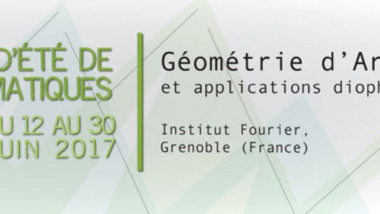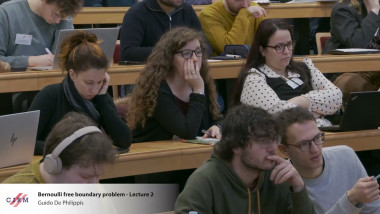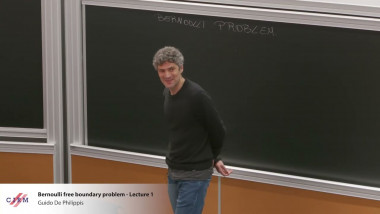Appears in collection : Recent progress for mathematical and numerical analysis of inverse problems / Progrès récents dans l'analyse mathématique et numérique des problèmes inverses
The anisotropic Calderon problem is whether it is possible to determine a Riemannian metric (modulo the natural invariance by isometries) on a compact Riemannian manifold with boundary from knowledge of the Cauchy data of harmonic functions. This problem is solved in dimension two, as well as in the conformal class of the Euclidean metric and for analytic metrics, but remains challenging for smooth metrics in dimension higher than three. In this talk I will present recent results in the case of a conformal class of metrics presenting a special structure of (warped) product with an Euclidean factor. I will explain how the identifiability of the conformal factor can be deduced from the injectivity of a certain geodesic ray transform in the transversal part of the manifold. In the case of independence with respect to the Euclidean variable, a direct link with the corresponding hyperbolic problem (which can be solved using the Boundary control method) can be made. This extends previous results of C. Kenig, M. Salo, G. Uhlmann and myself where stronger geometric assumptions were made.
This is a joint work with S. Kurylev (University College London), M. Lassas (University of Helsinki) and M. Salo (University of Jyvaskyla)
![[1247] Dérivation de l'équation de Boltzmann en temps long à partir d'une dynamique de sphères dures](/media/cache/video_light/uploads/video/SeminaireBourbaki.png)
